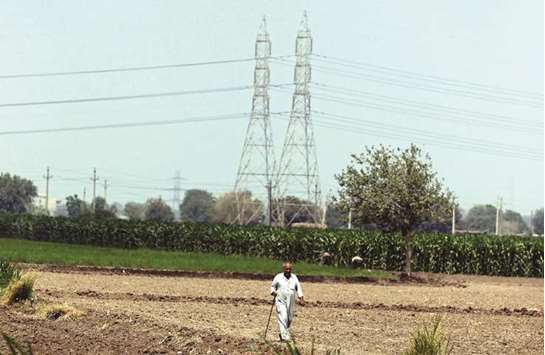Egypt yesterday raised household electricity prices by as much as 42%, in a move likely to further anger a population already struggling with soaring costs.
The increases, which include ending subsidies entirely for the highest power consumers, were widely expected as officials push ahead with reforms they have described as painful but long overdue. Yet coming a week after the government sharply raised fuel prices, the half of Egypt’s 93mn people who live near or below the poverty line face greater hardship.
Briefing reporters in Cairo, Electricity Minister Mohamed Shaker said the move was expected to lower the electricity subsidy bill to 52bn pounds ($2.9bn) from 82bn pounds. Earlier plans to scrap all power subsidies by 2019 would now be delayed until 2021, he said. The administration of President Abdel Fattah al-Sisi is looking to cut spending as it aims to trim the fiscal deficit to the equivalent of 9% of gross domestic product this fiscal year.
Egypt agreed to trim subsidies and expenditure as part of a broader programme to secure a $12bn International Monetary Fund lifeline seen as critical to winning foreign investor confidence. But the bailout also weakened the pound by half against the dollar and caused inflation to soar to about 30% – the highest level in decades.
Electricity prices for commercial enterprises were raised by between 22% and 44%, depending on usage tiers, according to a statement distributed by the minister.
Under the revised payment structure, Egyptians who consume below 50 kilowatts of electricity will see prices rise 18%, to 0.13 pounds per kilowatt, Shaker said. Prices for the second-highest usage tier of 651 to 1,000 kilowatts go up almost 32% to 1.25 pounds per kilowatt. The nation’s highest consumers will see bills rise by 42%.
In an effort to offset the impact of the reforms, the government has raised pensions and salaries for civil servants, while also allowing holders of ration cards to obtain more of their essentials at subsidised rates.

A farmer walks beside electricity pylons near a road which leads to Cairo yesterday. Egypt yesterday raised household electricity prices by as much as 42%, in a move likely to further anger a population already struggling with soaring costs.
